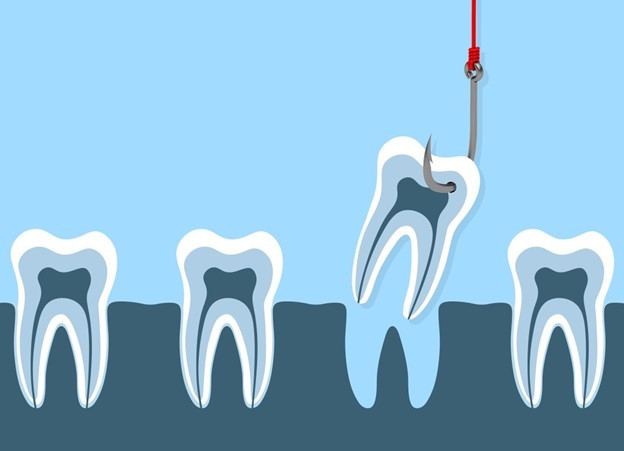At North York Dental, we understand the impact that a healthy smile has on your livelihood; and sometimes, a tooth needs to be removed in order to keep things on track! We’re thrilled to offer in-house tooth extractions in a quick manner and comfortable setting. We’re also proud to offer wisdom tooth extractions. Continue reading below to learn a little more about tooth extractions in North York and what you can expect both during and after the procedure, or feel free to give us a call to request additional information or to schedule a consultation.
Why Choose North York Dental for Tooth Extractions?
- Saturday Appointments Available
- Multiple Tooth-Replacement Options
- Wisdom Tooth Extractions Available
Reasons Why Tooth Extractions Are Necessary

Tooth extraction is never something that’s recommended lightly; after all, your natural teeth are quite important and arguably the best tools at your disposal for biting and chewing. If there’s even the slightest chance that the tooth in question can be salvaged, we’ll likely recommend a restorative treatment such as root canal therapy or a dental crown.
But in some cases, the procedure is deemed essential in order to protect your oral health. Tooth extraction is usually necessary to address the following issues:
- Extensive decay or irreparable damage in the tooth.
- Severe dental infection that could potentially spread to other teeth.
- Advanced gum disease that has caused jawbone deterioration.
- A baby tooth that hasn’t fallen out on its own.
- Wisdom teeth that have become partially or fully impacted.
The Process of Removing a Tooth

There are two primary methods for extracting a tooth: simple extraction and surgical extraction. In situations when a tooth that needs to be removed has fully emerged above the gumline, simple extraction is utilized. We’ll numb your mouth and gently grasp the tooth with a special pair of forceps before gently rocking it back and forth until it naturally separates from your gum tissue.
For teeth that haven’t fully erupted, surgical extraction is the better option. This involves making a small incision in the gums to gain access to more of the tooth, before it’s removed (often in separate pieces to minimize bone loss). The only way for us to determine which method of extraction is appropriate is for you to visit us for a consultation; together, we can plan out every detail of your treatment to ensure your total comfort and ultimate recovery.
Tooth Extraction Aftercare

Our team will provide you with a detailed list of post-op instructions, but some basic aftercare tips to take into consideration include:
- Take over-the-counter and prescribed pain relievers as instructed.
- Get plenty of rest and avoid exercise or strenuous physical activity, as it can increase your blood flow and potentially impact your mouth’s healing process. If you can, sleep with your head propped up.
- Stay away from hard, crunchy, sticky, or spicy foods for several days.
- Drink plenty of water to ensure proper hydration, but do not use a drinking straw, as the suction can dislodge the blood clots that form over the sockets.
- Keep the surgical site clean by brushing and flossing around it carefully; 24 hours after your procedure, you can rinse your mouth using a warm saltwater mixture.
- Avoid smoking and all tobacco products.
It’s not uncommon to experience some light bleeding, swelling, or general discomfort as you recuperate from your tooth extractions in North York. If your symptoms persist for a few days after your procedure, contact us right away; it might be the sign of a complication!